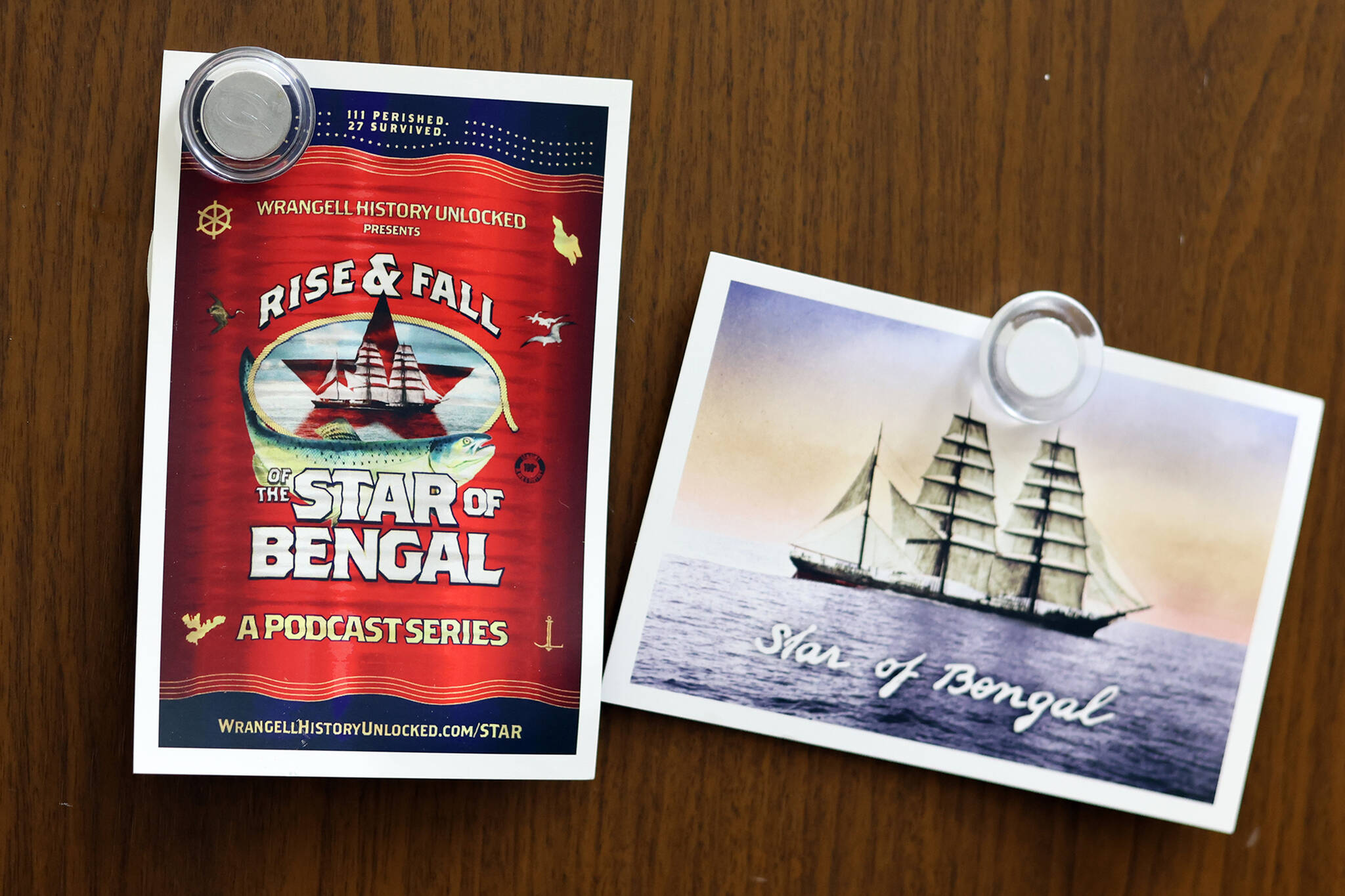A 1908 shipwreck near Wrangell that killed 111 of the 138 men on board, mostly Asian cannery workers returning home, will be narrated by various current and former residents of the community in a five-part weekly podcast starting Friday.
The Star of Bengal, a three-mast steamship built in 1874 by the same Irish the shipyard that later constructed the Titanic, was beginning a voyage from Fort Wrangell to San Francisco when it struck rocks and sank near Coronation Island during a storm on Sept. 20, 1908. A team of researchers embarked on a mission this May to find the remains of the wreck.
Ronan Rooney, who grew up in the tiny Southeast Alaska town and now lives in Oregon, said in an interview Tuesday it’s the most in-depth of the 10 podcast projects about Wrangell’s history he started doing in 2020.
“When COVID hit I was sort of lost, I didn’t know what I was going to do,” he said. “This was kind of the perfect thing. It lets me keep in touch with people back home.”
Among the other podcasts at Wrangell History Unlocked are “The Christmas Bombardment” when “after a drunken party on Christmas Day turns violent, Fort Wrangell unleashes two days of cannon fire on its Tlingit neighbors”; the arrest of Tlingit elder Tillie Paul Tamaree for “inciting” a tribal chief to vote; and a couple of notorious murder cases.
Rooney said his research into the town’s history and response from listeners extends far beyond the region.
“It keeps me connected with people all over the world because when you try to tell the story of a small town it’s connected to the whole world,” he said.
The Star of Bengal series, for instance, opens with the ship’s three decades of world passenger and cargo shipping before being sold to the Alaska Packers’ Association in 1905. From there the episodes focus on the ill-fated journey and the aftermath including the captains of the streamship and two supporting tugboats facing “charges of cowardice from the survivors.”
Rooney said he chose the shipwreck for his latest podcast project because “a lot of people in Wrangell have these kinds of jobs,” plus he was a trawler himself with his father while living there.
“I can vividly describe what it’s like to jump in that water because I’ve done it before,” he said. “It’s cold.”
While his earlier podcasts were simple narrations by himself, with possibly solo piano music by his wife, the Star of Bengal series features a broad range of music and sound effects. Furthermore, he had numerous residents he still knows in Wrangell “phone in” their narratives of various people that were a part of the shipwreck’s history.
Among the most notable contributions is from his mother, Alice, who still lives in Wrangell and in 1981 recorded an interview with a man aboard one of two boats towing the Star of Bengal from port out to sea when the storm hit, causing navigational chaos among the three vessels and resulting in the steamship’s wreck. Rooney said portions of the interview will be part of the first podcast.
But not everything he and those participating in the podcast were told and learned about during their research is factual. Rooney said his mother, for instance, was told many of the Chinese, Japanese and Filipino cannery workers who mostly perished were locked below deck while the ship was sinking. In reality, Rooney said, the Chinese workers in particular simply didn’t put on the lifejackets they were provided with.
“The cannery workers were not seamen, they didn’t necessarily know how to swim,” Rooney said. But he includes and sets the story straight about such myths because “I still respect the fact this legend exists.”
“One of my challenges was to go to the evidence, eyewitness statements and asking what makes sense,” he said.
“It’s been getting more and more elaborate,” he said. “I spent about a year researching this because there are so many twists.”
That year includes three months of editing and producing the series. He said it will be broadcast on Thursday on the Wrangell public radio station KSTK before the podcasts are available online a day later.
• Contact reporter Mark Sabbatini at mark.sabbatini@juneauempire.com.

